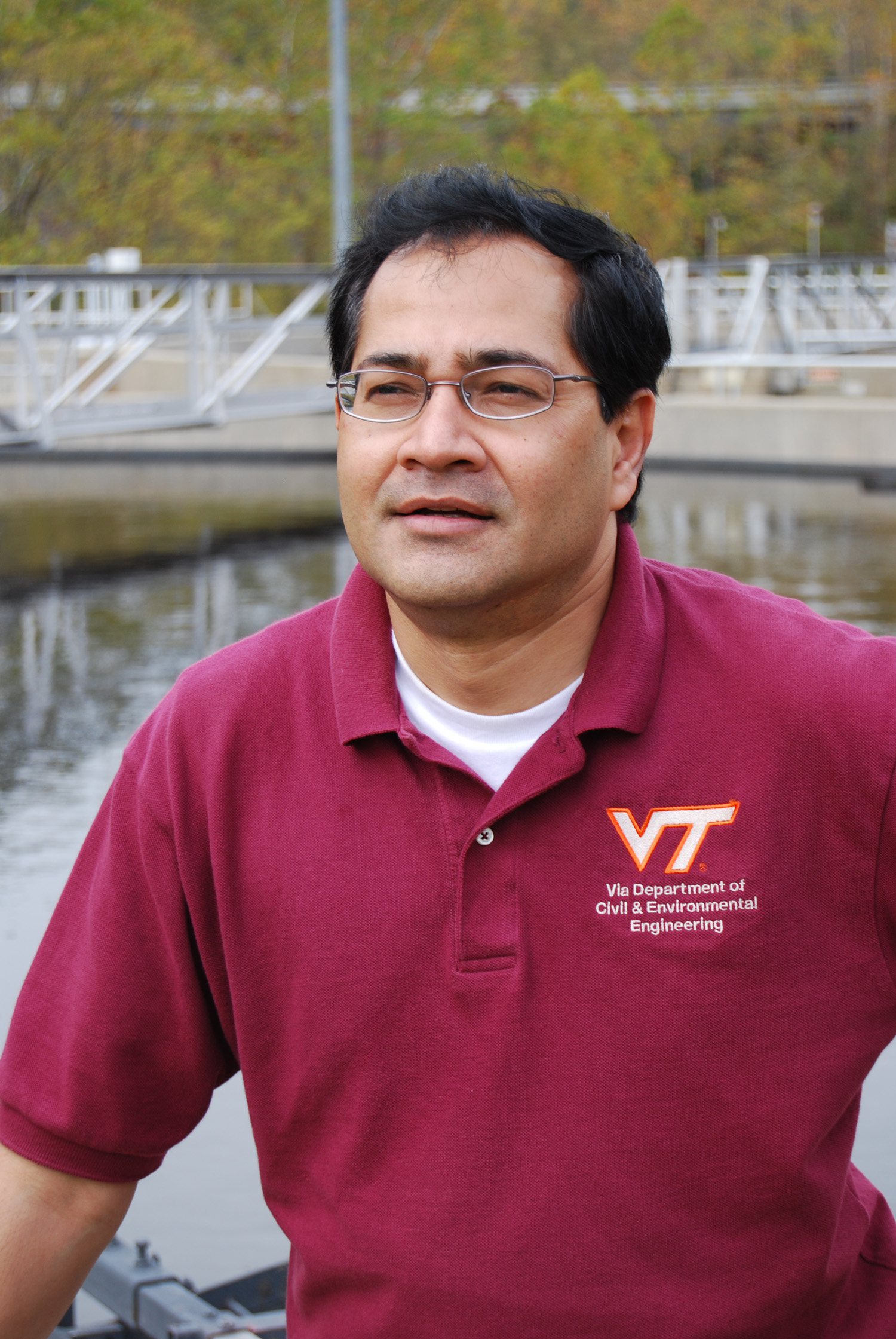Associate professor to provide asset management training to water supervisors

An associate professor with Virginia Tech's College of Engineering at Virginia Tech will host a two-day conference March 10-11 in Blacksburg to help municipalities manage their water and sewer infrastructure to curb potential service problems for customers.
“Advancing Asset Management in Your Utility: A ‘Hands-on’ Workshop,” to be held at the Virginia Tech campus in Torgersen Hall, will provide attendees with hands-on experience in managing their water and sewer facilities for long-term sustainability, said host Sunil Sinha, an associate professor with the Via Department of Civil and Environmental Engineering.
A comprehensive, cost-effective approach using “state of the practice” concepts, tools, techniques, and technologies to manage water/sewer assets will be introduced at the workshop, Sinha said. The approach will focus on providing sustained performance to the customer at the lowest life-cycle cost and at an acceptable level of risk to the organization, he added. The workshop also will give step-by-step demonstrations on how an agency would select and deploy asset management practices best suited to its operation. The conference is open to water/sewer asset managers across the United States, Sinha said.
Each workshop will
- Incorporate a real-world storyline to realistically demonstrate an advanced asset management way of approaching difficult asset-driven problems,
- Demonstrate the concepts, techniques and tools of advanced asset management through participant exercises, and
- Focus on case-based mentoring by expert asset management practitioners.
“Over the past half century, America has spent trillions of dollars building some of the finest infrastructure that history has ever seen,” Sinha said. “This investment has played a substantial role in the sustained prosperity and quality of life of our country. But in many communities, this infrastructure is severely stressed from overuse, under-funding of maintenance and renewal, and aging.” In cities such as Philadelphia, which has the country’s oldest water infrastructure service, many pipes are 120 years old. Additionally, many municipal systems haven’t been looked at or maintained since their installation decades ago, Sinha added. Estimated costs of replacing all U.S. potable water mains is pegged at nearly half a trillion dollars.
Workshop trainers include Steve Allbee, the U.S. Environmental Protection Agency’s project director for Gap Analysis, and primary author of the agency’s “The Clean Water and Drinking Water Infrastructure Gap Analysis;” and Duncan Rose, technical director and principal consultant for global corporation GHD, and co-author of the Water Environment Federation’s textbook, “Managing the Water and Wastewater Utility.”
On March 10, Sinha will screen the documentary “Liquid Assets: The Story of Our Water Infrastructure,” which recently aired on PBS affiliates across the country. Sinha helped spearhead the film while an assistant professor at The Pennsylvania State University and continued to work on the project after he was hired by Virginia Tech. The documentary is a startling look at the water and sewer lines that Americans use every day, but rarely consider. The 2-million-plus miles are “out of sight and out of mind” for the general public, he said.
The workshop registration fee is $175 on or before Feb. 10. Afterward, the fee increases to $225. Course materials, instruction, and lunches are included in the fee. Registration deadline is Feb. 23. At the conclusion of the workshop, Virginia Tech will provide a CEU certificate for 1.6 CEUs (16 contact hours).
Sinha is the winner of the National Science Foundation Career Award titled “Sustainable Water Infrastructure Management System (SWIMS)” for 2006- 2011, the National Science Foundation International Research and Education in Engineering Award for 2007 and was named the Schreyer Institute InSPIRE Academy Fellow by The Pennsylvania State University in 2006. He is a member of the American Society of Civil Engineers, American Society for Engineering Education, North American Society for Trenchless Technology, and American Society for Testing and Materials. He also holds adjunct professorship positions at the University of Waterloo, Canada, where he received his Ph.D. in civil and environmental engineering, and at The Pennsylvania State University.
Sinha also is co-director of the recently established the Virginia Tech Institute for Critical Technology and Applied Science (ICTAS) Center of Excellence (ICE) in Sustainable Water Infrastructure Management (SWIM). The center will focus its research on the sustainable water infrastructure management systems. This includes a multiple number of areas such as water chemistry, sensor technology, nanotechnology, information technology, material science, construction technology, green engineering, sustainable and innovative technologies, renewal engineering, and infrastructure asset management.




